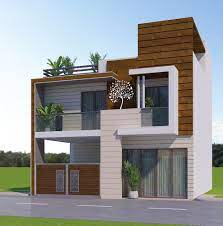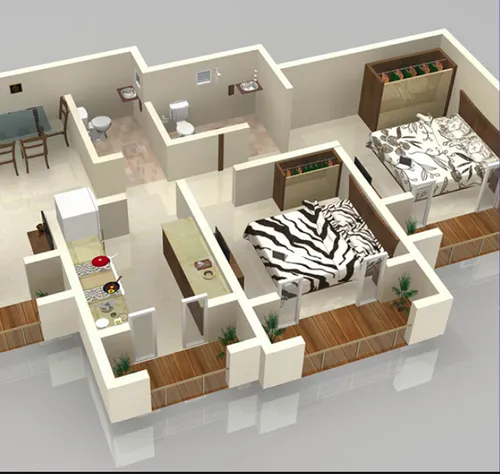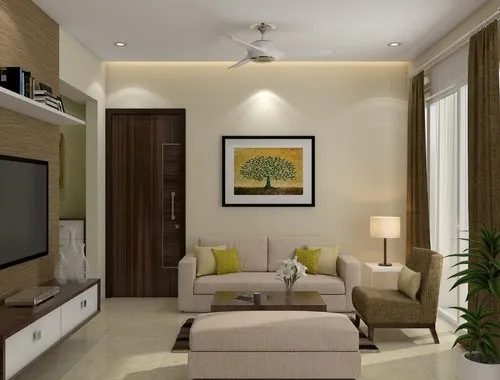


DESCRIPTION
WHAT YOU WILL LEARN IN THIS COURSE
In this course, you will learn how to use 3Ds Max to model, apply the material, add lights and cameras, render still images, and animate architectural or interior scenes. Gain a strong understanding of 3d concepts and 3ds Max tools like Modeling, Materials, lighting, and Rendering techniques that will take your project from concept to final render.
PREREQUISITES
WHO THIS COURSE FOR
Civil / Architecture / Interior Design Student /Professional or Anyone who wants to learn 3D Modeling, Architectural Modeling or Rendering Interior or Exterior Designs in 3DS MAX.
COURSE OUTLINE
About 3Ds MAX, History, Uses, and Applications.
Downloading the software from AutoDesk.
Installing the 3Ds Max Software.
The Command Panel, Zoom, and Pan with the Wheel, The View Cube, The Zoom Panel, Viewport Layouts, Active View, Viewport Shade Modes, Perspective, Orthographic, Top, and Other Views, Rendering Setup, Grids, and Viewport Configuration, Undo/Redo.
Selecting/Deselecting Multiple Objects, Window/Crossing, Selection Types, Naming Objects, Selecting by Name, The Selection Filter.
The Move Tool, The Transform Gizmo, Absolute/Offset Transform Modes, Pivots, View and Local Coordinate Systems, Rotate and Scale, Select and Place, Moving Objects Along Local and View Axis, Object Snaps, Angle Snap, Percent Snap, Spinner Snap, Selection Sets.
MIRRORING, ALIGNING, GROUPING, AND CLONING OBJECTS
Mirroring Objects, Aligning Positions, Aligning Orientations, Normal Align,
Grouping/Ungrouping, Editing Groups: Open, Close, Attach, Detach, and Explode.
Creating and Modifying the Hedra, ChamferBox, OilTank, Spindle, Gengon, RingWave, Hose, Torus Knot, ChamferCyl, Capsule, L-Ext, C-Ext, and Prism.
Import AutoCAD file into 3Ds Max, Export 3Ds Max file in AutoCAD.
Creating Simple Walls and Doors, Aligning Doors with Walls, Moving Doors Using Local Axis, Creating Openings Using Boolean.
Primitive Objects, Converting Primitives to Mesh Objects.
Modifying Mesh Objects: Vertex, Edge, Face, and Polygon.
The Editmesh Modifier, Meshsmooth, Soft Selection, Using the FFD 4x4x4, the FFD 3x3x3, and the FFD 2x2x2 to Modify Objects.
Difference Between Mesh Objects and Poly Objects, Smoothing a Poly Object, The Editpoly Modifier, NURBS Modeling.
CREATING & EDITING SHAPES
Shape Objects: Lines, Circles, etc.
Creating and Animating a 3D Helix.
Editing Shape Objects: Vertex, Segment, Spline.
Creating Internal Lines, Attaching External Lines.
The Editing Vertices: Break, Fuse, Weld, Refine, Insert, Make First, Connect, Cycle, Fillet, and Chamfer.
The Editing Segments: Divide
Editing Splines: Reverse, Outline, Boolean, Mirror, Copy, Trim, and Extend.
Attaching and combining shape objects.
Creating & Editing Foliage, Railing & Wall.
Creating & Editing straight stairs, L Type stairs, U Type Stairs, and spiral stairs.
The Material Editor, Material Slots, Shader Basic Parameters, Blinn Basic Parameters,
Using Diffuse Maps, Bitmap Properties, and Bump Maps.
Planar, Cylindrical, Spherical, Box, Shrink Wrap.
Using Target Spotlights, Spotlight Properties, Free Spotlights, Target Direct Lights,
Free Direct Lights, Omni Lights, Skylights.
Key Lights – Target Spot
Fill Lights – Large Target Direct
Back Lights – Skylight
Creating a Daylight System
Setting True North
Location Data
Date and Time Data
Setting Exposure Control
Render Setup Dialog, Rendered Frame Window, Rendering Progress dialog,
Render Output File Dialog.
Drawing the Camera Path
The Walkthrough Assistant
Time Configuration
Rendering the Animation

